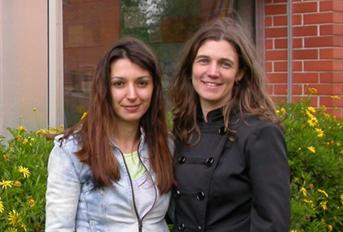Associação Portuguesa de Investigação em Cancro
Macrophages stimulate the invasion of gastric and colorectal tumor cells
Macrophages stimulate the invasion of gastric and colorectal tumor cells

Authors and affiliations:
Cardoso AP, Pinto ML, Pinto AT, Oliveira MI, Pinto MT, Gonçalves R, Relvas JB, Figueiredo C, Seruca R, Mantovani A, Mareel M, Barbosa MA, Oliveira MJ
1.Instituto de Engenharia Biomédica, Universidade do Porto, Porto, Portugal
2. Faculdade de Engenharia, Universidade do Porto, Porto, Portugal
3. Instituto de Patologia e Imunologia da Universidade do Porto (Ipatimup), Porto, Portugal
Abstract:
The interactions between cancer cells and their microenvironment are crucial for malignant progression, as they modulate invasion-related activities. Tumor-associated macrophages are generally considered allies in the process of tumor progression in several types of cancer, although their role on gastric and colorectal carcinomas is still poorly understood. In this report, we studied the influence of primary human macrophages on gastric and colorectal cancer cells, considering invasion, motility/migration, proteolysis and activated intracellular signaling pathways. We demonstrated that macrophages stimulate cancer cell invasion, motility and migration, and that these effects depend on matrix metalloproteinase (MMP) activity and on the activation of epidermal growth factor receptor (EGFR) (at the residue Y1086), PLC-γ (phospholipase C-gamma) and Gab1 (GRB2-associated binding protein-1), as evidenced by siRNA (small interference RNA) experiments. Epidermal growth factor (EGF)-immunodepletion impaired macrophage-mediated cancer cell invasion and motility, suggesting that EGF is the pro-invasive and pro-motile factor produced by macrophages. Macrophages also induced gastric and colorectal cancer cell phosphorylation of Akt, c-Src and ERK1/2, and led to an increase of RhoA and Cdc42 activity. Interestingly, whereas macrophage-mediated cancer cell c-Src and ERK1/2 phosphorylation occurred downstream EGFR activation, Akt phosphorylation seems to be a parallel event, taking place in an EGFR-independent manner. The involvement of EGF, EGFR-downstream signaling partners and MMPs in macrophage-mediated invasion provides novel insights into the molecular crosstalk established between cancer cells and macrophages, opening new perspectives for the design of new and more efficient therapeutic strategies to counteract cancer cell invasion.
Revista:
Oncogene
Link:
http://www.nature.com/onc/journal/vaop/ncurrent/full/onc2013154a.html




